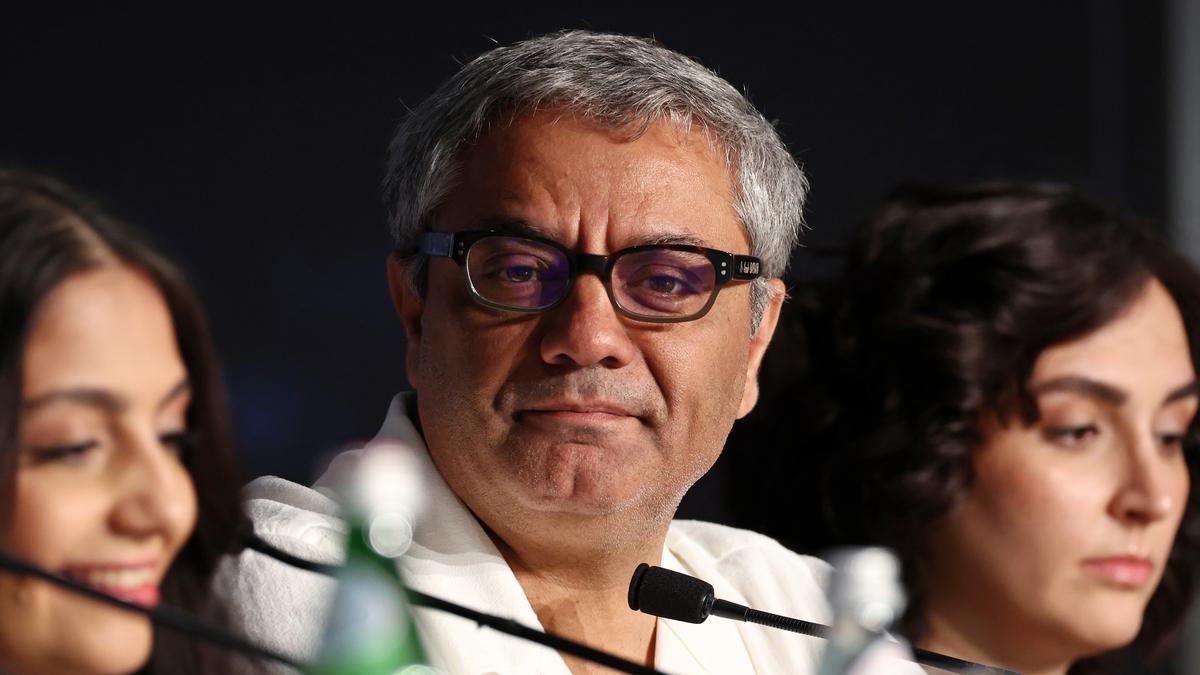
Iranian director Mohammad Rasoulof shared a harrowing account of his swift decision to enter exile during a poignant press conference at the Cannes Film Festival. Addressing a room full of journalists, Rasoulof detailed the fraught hours leading up to his exile as he weighed the heavy choice between imprisonment or leaving his homeland. A decision that profoundly affected him, making it challenging to relive those moments even today.
Rasoulof’s presence at Cannes comes with the premiere of his highly anticipated drama, “The Seed of the Sacred Fig.” The film saw its debut less than two weeks after Rasoulof announced he had fled Iran, defying an eight-year imprisonment sentence which included the additional sting of flogging. The urgency of his departure was precipitated by catching wind of the impending enforcement of his sentencing, coupled with growing awareness among Iranian authorities about his controversial new movie.
“I had a week before my sentence was to be enforced,” Rasoulof recounted. The revelation placed him on an accelerated timeline. “I had to ask myself whether I wanted to face imprisonment or to leave Iran—my geographic home—and join the cultural Iran that thrives beyond its borders.” The gravity of this decision weighed heavy on the director, taking him a tense two hours to conclude his fate. He walked around his house, saying goodbye to his beloved plants, realizing that every step he took could be towards a different life entirely.
Rasoulof eventually left everything behind, stepping out with little more than his liberty intact. “It’s not an easy decision to make, and it is still tough to speak of it today,” he admitted to the gathered press, his words resonating with a mix of determination and sadness.
The political backdrop to Rasoulof’s escape marks a critical point in his career and life.
. Iran’s culture minister, Mohammad Mehdi Esmaili, had declared that Rasoulof’s film was created illicitly, hinting at increased repression against unauthorized art. This government crackdown further underscored Rasoulof’s urgent need to leave, to preserve not just his freedom but also his voice as an artist.
“The Seed of the Sacred Fig” delves into potent social commentary, portraying a judicial official who becomes increasingly tyrannical towards his family amidst the 2022 protests surrounding the death of Mahsa Amini—a Kurdish woman whose arrest by Iran’s morality police over alleged dress code violations led to widespread unrest. This narrative struck a powerful chord, achieving the longest-standing ovation at Cannes and receiving praise for its mesmerizing storytelling and profound impact.
This adulation at Cannes is a testament to Rasoulof’s persistence and the authenticity he brings from his own tribulations. The director, who has faced multiple arrests and detentions on accusations ranging from unauthorized filming to charges of collusion against national security, draws heavily from personal encounters with Iran’s secret services for his film’s narrative.
“All these characters and scenes derive from real people and genuine situations,” Rasoulof explained. His continuous confrontations with Iran’s covert operatives sharpened his skill in evading them, an experience he blends into the fabric of his storytelling. In a lighter moment during the press conference, he likened his life to that of gangsters, albeit that of the cinema world, emphasizing the dangers they navigate to bring their stories to light.
Despite the accolades and the palpable relief of having escaped Iran, the pain of separation remains fresh for Rasoulof. His journey from Tehran to the global stage at Cannes encapsulates not just the journey of a filmmaker but the tribulations faced by many artists under oppressive regimes. While his work continues to gain international acclaim, Rasoulof’s heart remains tied to the country he was forced to flee from.
The emotional resonance of “The Seed of the Sacred Fig” and Rasoulof’s personal saga serve as a stark reminder of the enduring power of art amidst oppression. His story echoes the struggles of countless artists who fight to maintain their freedom of expression against authoritarian constraints, ensuring their voices and visions continue to impact the world, one film at a time.












